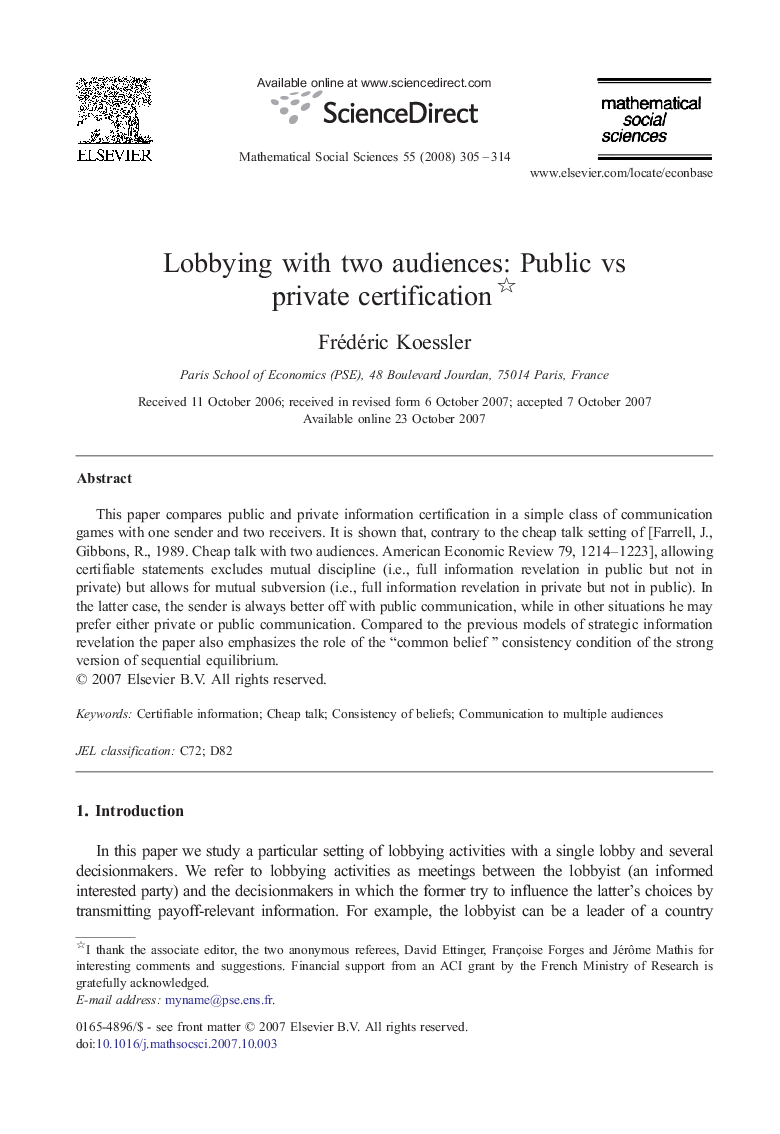| Article ID | Journal | Published Year | Pages | File Type |
|---|---|---|---|---|
| 972109 | Mathematical Social Sciences | 2008 | 10 Pages |
This paper compares public and private information certification in a simple class of communication games with one sender and two receivers. It is shown that, contrary to the cheap talk setting of [Farrell, J., Gibbons, R., 1989. Cheap talk with two audiences. American Economic Review 79, 1214–1223], allowing certifiable statements excludes mutual discipline (i.e., full information revelation in public but not in private) but allows for mutual subversion (i.e., full information revelation in private but not in public). In the latter case, the sender is always better off with public communication, while in other situations he may prefer either private or public communication. Compared to the previous models of strategic information revelation the paper also emphasizes the role of the “common belief ” consistency condition of the strong version of sequential equilibrium.
